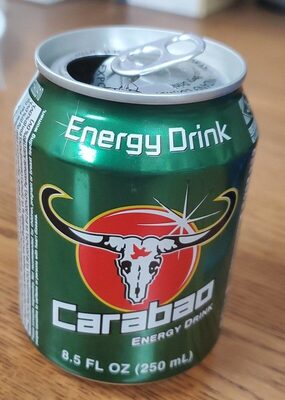
Barcode: 873099000011
Carabao energy drink
DOUBTFUL
📝 Reason: Certain components in this product have ambiguous Islamic rulings. Consultation with a qualified Halal certification authority is strongly recommended before consumption.
🏷️ Category: Beverages, Energy Drinks, Sweetened Beverages
📄 Certificates: Vegetarian, Vegan
Ingredients:
Details
Examining the Halal Status of Carabao Energy Drink
In the increasingly diverse world of energy drinks, questions about their Halal status are paramount for Muslim consumers. Carabao Energy Drink is a popular choice for those seeking an energy boost, but does it meet the dietary requirements set forth in Islam? The Halal status of this beverage is currently classified as Doubtful. This classification stems from the ambiguous nature of certain ingredients and components found within the drink, which we’ll explore further.
Ingredients List and Halal Considerations
The primary ingredients in Carabao Energy Drink include:
- Water
- Sucrose
- Citric Acid
- Taurine
- Artificial Flavors
- Caffeine
- Inositol
- Sodium Benzoate (as a preservative)
- Nicotinamide
- Dexpanthenol
- Vitamin B6
- FD&C Yellow No. 5
- Ethyl Maltol
- FD&C Red No. 40
- Vitamin B12
Let’s take a closer look at some of these ingredients to assess their Halal status:
- Water: Permissible in Islam.
- Sucrose: Permissible in Islam.
- Citric Acid (E330): Produced through fermentation processes and is generally considered Halal.
- Taurine: An amino acid which is permissible.
- Artificial Flavors: This is where the doubt arises. The sources of these flavors can sometimes include non-Halal components, making their status uncertain.
- Caffeine: Halal and commonly found in various drinks.
- Inositol: Permissible in Islam.
- Sodium Benzoate: Permissible, often used as a preservative.
- Nicotinamide: Generally recognized as permissible, but it’s wise to verify the source.
- Dexpanthenol: Status can vary; consultation is recommended.
- Vitamin B6: Permissible in Islam.
- FD&C Yellow No. 5 and Red No. 40: These coloring agents can be derived from both plant and animal sources. Their Halal status may depend on the manufacturing process.
- Ethyl Maltol (E637): Used as a flavor enhancer, generally permissible, but requires further verification based on source.
- Vitamin B12: Usually permissible, though, as with other components, it’s wise to confirm its origin.
Understanding the Ambiguities in Halal Certification
The complexity of Halal certification arises largely from the sourcing of the ingredients. While many components in Carabao Energy Drink are considered permissible in Islam, the potential for certain artificial flavors to derive from non-Halal sources raises concern. As consumers, it is vital to remain informed and consult with Halal certification authorities when unsure.
Brand and Category Context
Carabao Energy Drink falls within the category of beverages, energy drinks, and sweetened beverages. Its branding appeals to a youthful demographic seeking energy and refreshment. However, as the market grows, so too does the need for transparency regarding ingredients, especially for consumers mindful of Halal standards.
This drink is certified as Vegetarian and Vegan, which guarantees it does not contain meat or animal products. However, Halal adherence requires a deeper inspection than just vegetarian standards.
Final Thoughts
In conclusion, the Halal status of Carabao Energy Drink remains doubtful due to potential ambiguities surrounding certain ingredients, primarily artificial flavors. We encourage consumers to consult with knowledgeable Halal certifying authorities for a definitive answer. If you are seeking a trusted energy drink, remaining informed about its sourcing can help ensure that your dietary choices align with your beliefs. Until clearer guidelines are set, exercise caution and stay informed.
